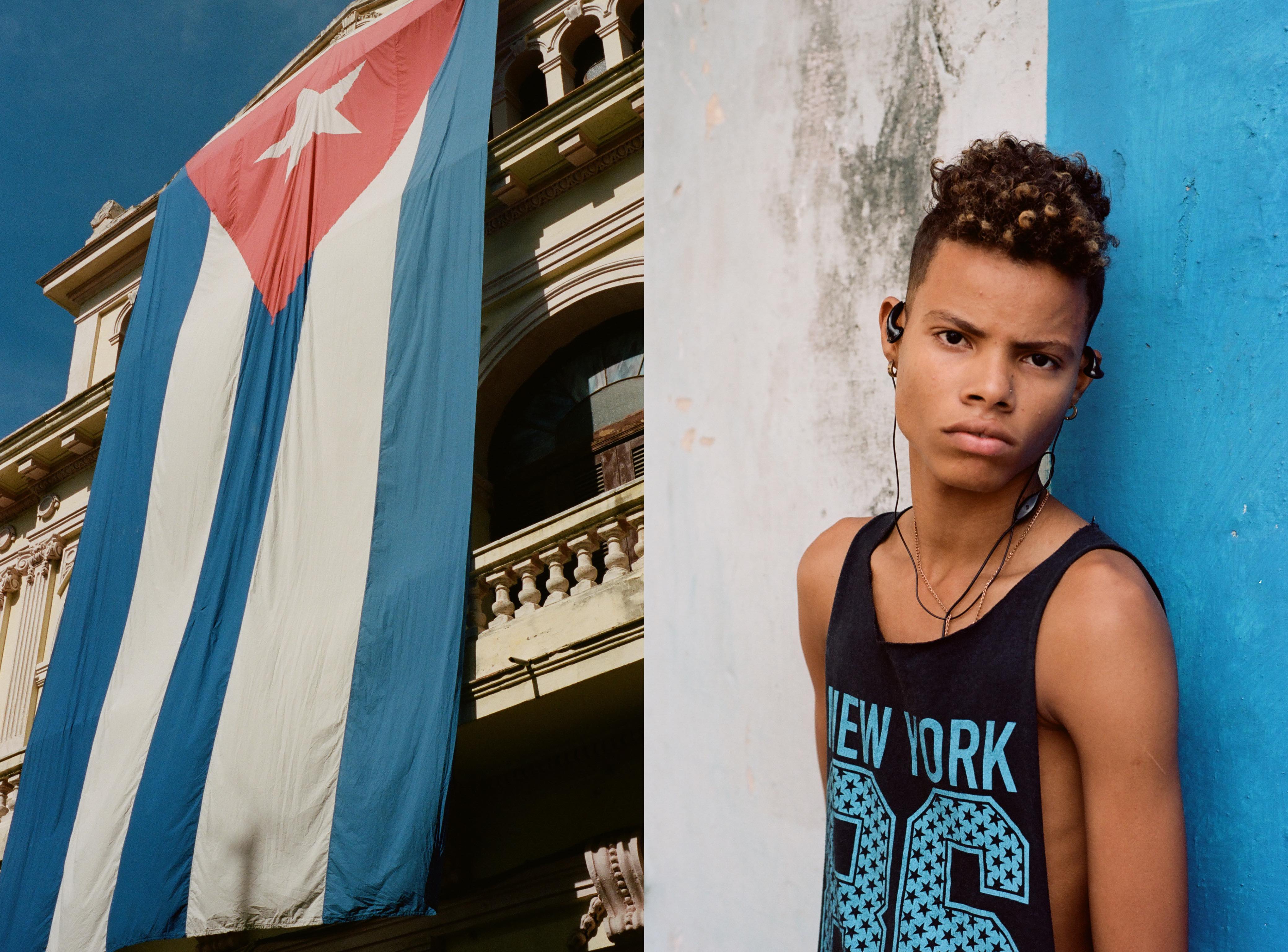What it’s really like to be a young man in Cuba today
- Text by Biju Belinky
- Photography by Joshua Osborne

Havana is a city of contrasts. As the capital of Cuba, it exists under a communist government, while simultaneously being a fledgling touristic hub, drawing in thousands of outsiders every year – be it for the cigars, the rum, the boxing, or the history.
At the beginning of this year, one of these outsiders was London-based photographer Joshua Osborne, who headed out to the country with 20 empty rolls of film, curiosity and an open mind. What he returned with was HABANABOYS: his debut photography book that serves as a testament that, no matter how different the political system, some things stay the same – youth being one of them.
The book, with vibrant design by Joe Joiner and a foreword by Dazed arts and culture editor Ashleigh Kane, shines a light on the lives and different styles of young men in the Cuban capital – with all their highs, lows and growing pains.
The subjects, all men (with one exception), are part of a variety of different subcultures that are prevalent in the capital. They come from many different backgrounds, and were street-cast with the linguistic help of two local “Wi-Fi boys” Joshua struck a friendship with.

 “You’ve got the Reggaeton boys, who are the ones with all the fades and the lines shaved in their hair, they would listen to Daddy Yankee and stuff,” explains Joshua in his introduction. “Then you have Miki Boys, who are into European music and fashion. They’re particularly interested in tourist girls. They’re also quite open minded and embrace a lot of different cultures. Then there are the skaters – a young and growing community, because everything has to be handmade or brought in by someone visiting. And then, of course, there are the boxers.”
“You’ve got the Reggaeton boys, who are the ones with all the fades and the lines shaved in their hair, they would listen to Daddy Yankee and stuff,” explains Joshua in his introduction. “Then you have Miki Boys, who are into European music and fashion. They’re particularly interested in tourist girls. They’re also quite open minded and embrace a lot of different cultures. Then there are the skaters – a young and growing community, because everything has to be handmade or brought in by someone visiting. And then, of course, there are the boxers.”
There are no stereotypes to be seen here – no gaudy cigars or dramatic political statements. Instead, dilapidated buildings intertwine with golden rings, makeshift grillz, footballers, police uniforms and Drag Queens.
The accompanying quotes, just like the pictures, show a mix of familiarity and unfamiliarity, all while offering an honest perspective on what its like to be young and Cuban today. Although part of a changing social landscape, they’re also dealing with the familiar need to belong. “So often, people come here with the idea that it doesn’t work at all, that it’s shit,” said one of the boys. “And then they see the joy with which we live.”
HABANABOY is out on the 1st of September, at Protein Studios in Shoreditch. You can keep up with Joshua Osborne on his website.
Enjoyed this article? Like Huck on Facebook or follow us on Twitter.
Latest on Huck

Is the UK ready for a Kabaddi boom?
Kabaddi, Kabaddi, Kabaddi — Watched by over 280 million in India, the breathless contact sport has repeatedly tried to grip British viewers. Ahead of the Kabaddi World Cup being held in Wolverhampton this month, Kyle MacNeill speaks to the gamechangers laying the groundwork for a grassroots scene.
Written by: Kyle MacNeill

One photographer’s search for her long lost father
Decades apart — Moving to Southern California as a young child, Diana Markosian’s family was torn apart. Finding him years later, her new photobook explores grief, loss and connection.
Written by: Miss Rosen

As DOGE stutters, all that remains is cringe
Department of Gargantuan Egos — With tensions splintering the American right and contemporary rap’s biggest feud continuing to make headlines, newsletter columnist Emma Garland explains how fragile male egos stand at the core of it all.
Written by: Emma Garland

Photo essay special: Despite pre-Carnival anxiety, Mardi Gras 2025 was a joyous release for New Orleans
A city celebrates — Following a horrific New Year’s Day terror attack and forecasts for extreme weather, the Louisiana city’s marquee celebration was pre-marked with doubt. But the festival found a city in a jubilant mood, with TBow Bowden there to capture it.
Written by: Isaac Muk

From his skating past to sculpting present, Arran Gregory revels in the organic
Sensing Earth Space — Having risen to prominence as an affiliate of Wayward Gallery and Slam City Skates, the shredder turned artist creates unique, temporal pieces out of earthly materials. Dorrell Merritt caught up with him to find out more about his creative process.
Written by: Dorrell Merritt

In Bristol, pub singers are keeping an age-old tradition alive
Ballads, backing tracks, beers — Bar closures, karaoke and jukeboxes have eroded a form of live music that was once an evening staple, but on the fringes of the southwest’s biggest city, a committed circuit remains.
Written by: Fred Dodgson





